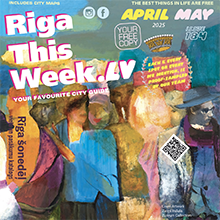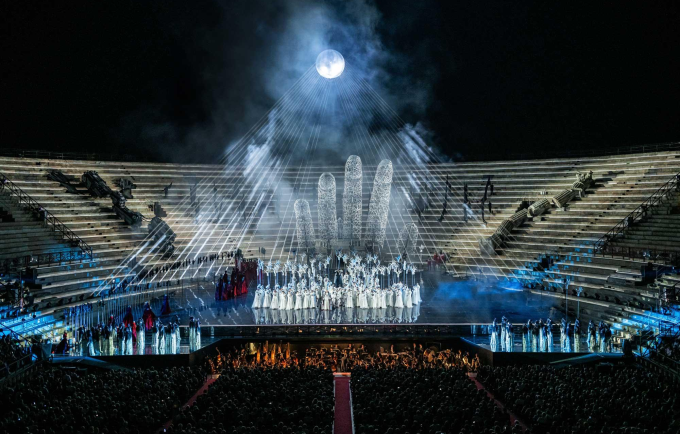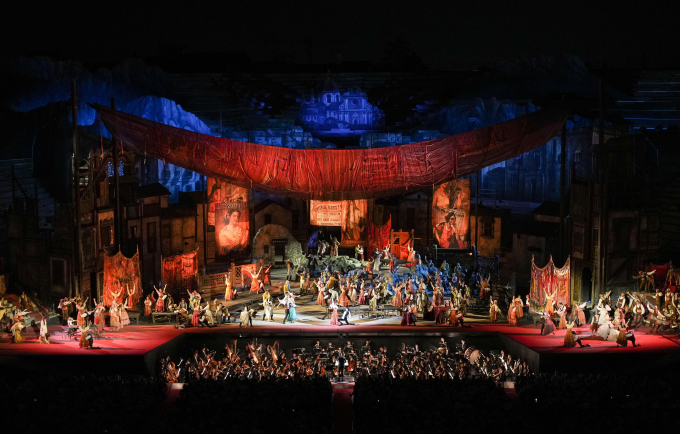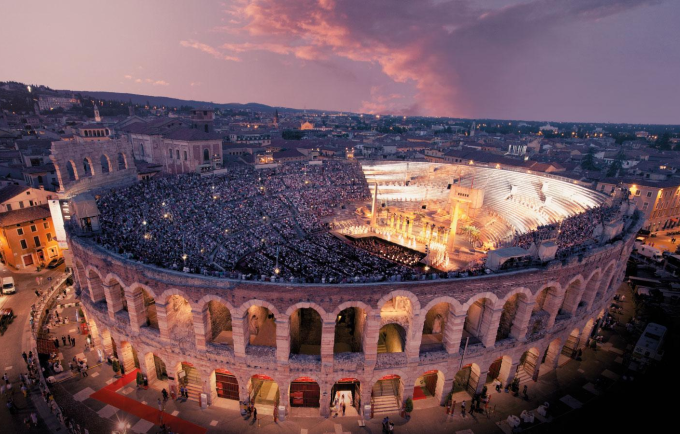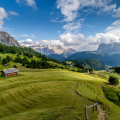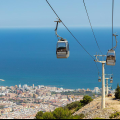Stone, Stars & Sound: Riga This Week Night at the Verona Opera Festival
I didn’t know Carmina Burana could bring such ave. Not in a Roman amphitheatre, under a warm August sky, surrounded by 15,000 strangers and 2,000 years of history. But it did.
Verona, with its soft pink stone and slow afternoons, had already won me over before the music even started. You arrive expecting Shakespeare, romance, and maybe a few too many heart-shaped souvenirs. What you get is something far more intense — a city where time folds in on itself and where even opera feels like a natural part of daily life.
The Arena di Verona dominates the city centre like a sleeping beast — ancient, weathered, and incredibly alive. Built around 30 AD, it was once a gladiator arena. Earthquakes shook it, medieval nobles turned it into a jousting field, and then, in 1913, a few brave dreamers turned it into an open-air opera stage. That first performance of Aida, on Verdi’s 100th birthday, started a tradition that now feels eternal.
I had never seen Carmina Burana live before — only heard snippets of "O Fortuna" in films or gym commercials (a crime, honestly). But this wasn’t just a performance. It was a full-on ritual. A one-night-only event in the 2025 Arena di Verona season, directed by the hometown maestro Andrea Battistoni, who has a kind of rockstar intensity for a conductor. The stage was epic — over 400 performers, from orchestra and chorus to the angelic white voices of two children’s choirs. There were pianos, gongs, timpani, and people in flowing robes. Everything glowed under the arena’s ancient arches.
You don’t really sit at the Arena — you settle in. I arrived early, with a cushion (essential), a bottle of local red, and a sense of something big about to happen. Around me: opera buffs in evening wear, sunburnt tourists in shorts, old Italian couples sharing sandwiches, and teenagers live-streaming the overture. No judgment. It’s Verona — where opera belongs to everyone.
Then the lights dimmed — or rather, the sky did. There are no artificial effects here. Just the turning of the Earth. The first notes hit like thunder. A wall of sound, rich and raw and almost pagan in its intensity. The chorus sang like they were summoning the gods, and for a moment, it felt like they might actually show up.
Carmina Burana is wild. It’s not about subtle drama or tragic lovers — it’s about fate, fortune, lust, wine, springtime, and the absurdity of life. It’s primal, poetic, and totally intoxicating. And in a place like the Arena, where history is literally beneath your feet, it feels less like a performance and more like time-travel.
The soloists were magnificent — especially Erin Morley, whose voice seemed to hover above the amphitheatre like light. Raffaele Pe and Youngjun Park added texture and gravitas, but the real star was the sheer force of the collective. When 100 voices sing "O Fortuna" at full volume, with drums pounding and fire in the air — your body reacts before your brain does. My skin tingled. My eyes welled up. I was, completely and unexpectedly, overwhelmed.
After the final note, silence held for a second — heavy, sacred — before the ovation broke out. People stood. People shouted. I think I cheered louder than anyone. I didn’t want to leave.
Walking back through the quiet streets of Verona that night, I felt like I had touched something ancient and alive. Not just music, but meaning. Art that strips away the noise of daily life and says, "This is what it means to be human."
If you ever find yourself in Italy in summer — skip the tourist traps for one night. Bring a cushion. Get a ticket to the Arena. It doesn’t matter if you love opera or don’t know a single aria. Verona will teach you. The music will shake you. The stone will hold you.
And when the stars come out, you’ll understand why some things last forever.
more info www.arena.it
Pictures: Aida_©EnneviFoto, Carmen_©EnneviFoto, Arena_istituzionale_


